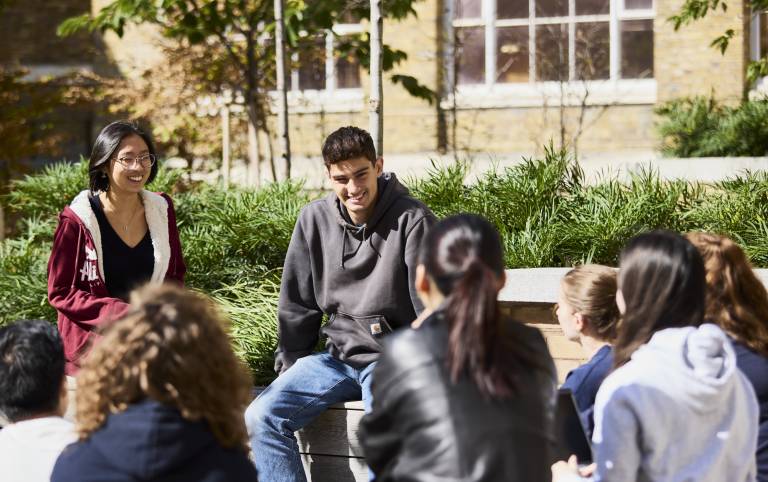Transition and Senior Mentors play an important role in supporting first-year undergraduate student transition to UCL. Find out how you can join the team.

Our Transition and Senior Mentors help students have a smooth transition from school to university. Being a mentor lets you learn important skills like leadership and communication while making a positive impact on your UCL department and student community. These experiences will make your CV and HEAR report stand out, and we can also give you a reference for future employers when you finish the programme.
The hours are flexible to suit your individual study timetable and you’ll receive training and support throughout your time as a Transition or Senior Mentor. Transition and Senior Mentors are paid roles.
Application process
Follow the steps below to apply for a role on the Transition Programme.
Step 1. Review the job description and person specification.
Read and review the job descriptions and person specifications below carefully to ensure you are eligible to apply and meet the requirements.
Step 2. Apply online
Complete and submit the application form.
If you worked as a Senior Mentor or Transition Mentor in previous years, you will be required to resubmit an application. Previous Transition and Senior Mentors can submit an application for both roles, but will only be allocated to one role.
Top tips for a good application:
- Read the job description and person specification carefully.
- Type out your answers in a word document, proof read carefully before copy and pasting into the application form.
- Avoid repeating what is written in the job description, we want to know about what makes you stand out!
- Include examples of what you have done that shows you would be an excellent Transition or Senior Mentor.
- Write in your own words. It is not permitted to use AI tools to write your application statements.
- Use the STAR technique where relevant.
- Stick to the word count limit.
Step 3. Your application will be shortlisted
Your application will be reviewed against the criteria outlined in the Person Specification and applicants who best match the criteria will be selected as Transition or Senior Mentors. Your department may choose to review the shortlisted candidates. All UCL selection members are required to complete a Fair and Inclusive Recruitment training to ensure an equitable recruitment experience.
Step 4. Your application outcome
You will receive an email confirming whether your application has been successful or not by early July.
Successful applicants: If your application is successful, you will be appointed as a Transition or Senior Mentor. Your position is subject to a successful Right to Work check and completion of training.
Reserve mentors: You may be offered the role of 'Reserve Mentor'. Reserve mentors will be contacted in Term One if a Transition or Senior Mentor withdraws and is no longer able to take up their role. Our reserve mentors are fantastic at stepping in and helping out a mentor group at short notice and will be paid for the training they complete and sessions run. You can opt out of the reserve list at any point by emailing transition@ucl.ac.uk.
Unsuccessful applicants: If your application was unsuccessful, we strongly encourage you to visit UCL Careers, who provide support and guidance on job applications. Unfortunately, due to the volume of applications we are unable to provide individual feedback to candidates.
Step 5. Next steps
You will be sent onboarding instructions to register via Unitemps and complete Right to Work checks. Compulsory training takes place virtually in late summer/early autumn and consists of an online Moodle training module and a 2 hour training workshop.
The Transition Team support mentors throughout their recruitment, training and time spent working on the programme. Support resources, session materials and a FAQ document are hosted on the Mentor Platform for all participants to access at any point in Term One.
 Close
Close

